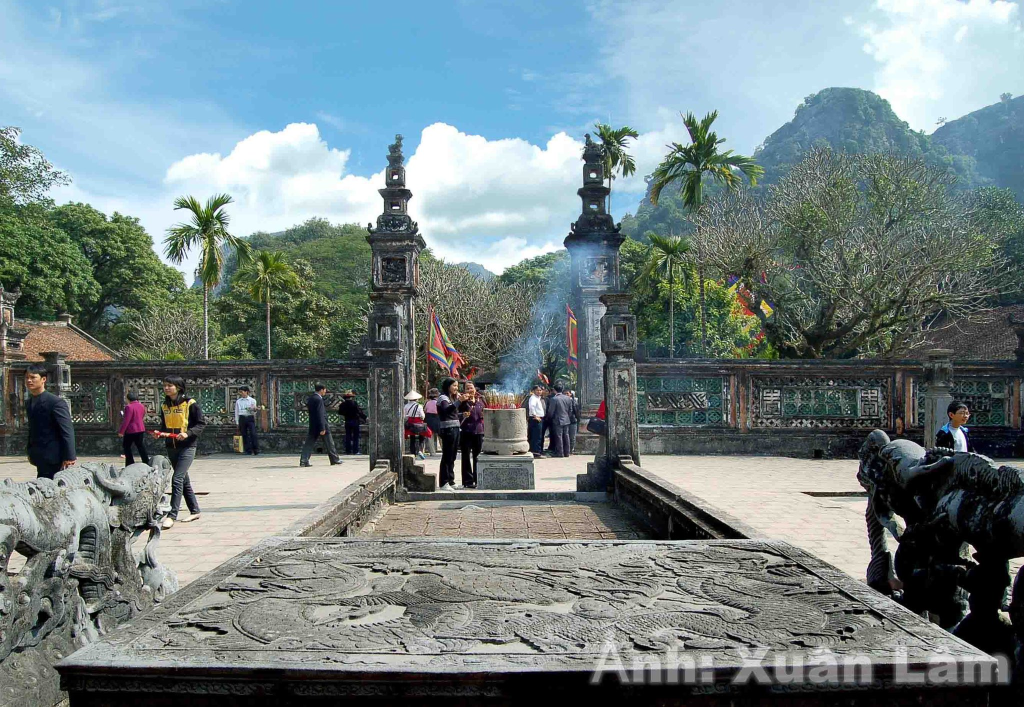
In the courtyard of King Dinh Temple in the ancient capital of Hoa Lu, a monolithic blue-stone imperial bed rests in silence. Upon its surface is the image of a majestic dragon, carved in the style of the Le-Trinh era. But curiously, all four of its limbs- rather than the traditional eagle talons- are shaped like slender, delicate, feminine human arms. Legend has it they are the arms of Duong Van Nga- the woman who once placed the imperial robe upon one who was not her son, ushering in a new dynasty.
In the year 979, King Dinh Tien Hoang and Crown Prince Dinh Lien were slain by an assassin. The Dinh court was thrown into disarray. The child emperor, Dinh Toan, was only six years old. Beyond the border, the Song army threatened invasion; within, the seeds of rebellion stirred. And in the eye of this storm stood Empress Dowager Duong Van Nga.

As mother of the emperor, she could have clung to the throne on her son’s behalf, citing rightful succession to gather loyalty. But she chose instead to hand the imperial robe to General of the Ten Circuits, Le Hoan- a man of talent, of troops, of unwavering loyalty, who already held the reins of power. It was not a retreat, but a direct blow to entrenched norms- an act of ultimate bravery, for it challenged every traditional moral standard: maternal love, loyalty to the ruler, and a wife’s duty. Brushing aside public scorn, historical judgment, and the threat of internal revolt, she remained resolute in her decision to cede the throne, for she saw clearly a nation on the brink, in need of a firm hand to hold its destiny together.

History gave its answer. Lê Hoàn ascended the throne, defeated the Song invaders in 981, and secured the kingdom’s borders. As for her, from Empress of the Đinh dynasty, she became Empress of the Early Lê- a rare woman in Vietnamese history who stood between two dynasties, for the survival of the nation.
The ancient stone bed remains silent, yet the dragon carved upon its surface still whispers a truth unrecorded by the chronicles: there are moments when a nation’s fate does not lie in the hands of the one who wears the crown, but in the choice of one who dares to abandon title, bloodline, even the sacred bond of motherhood. In the midst of civil strife, Duong Van Nga did not choose to preserve the throne for her son, but to place the life of the kingdom above all else. It was the choice of one who bore immense responsibility, sharp foresight, and the courage to look beyond the lifespan of a single dynasty.



